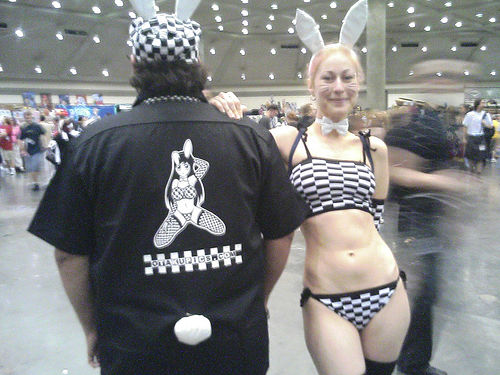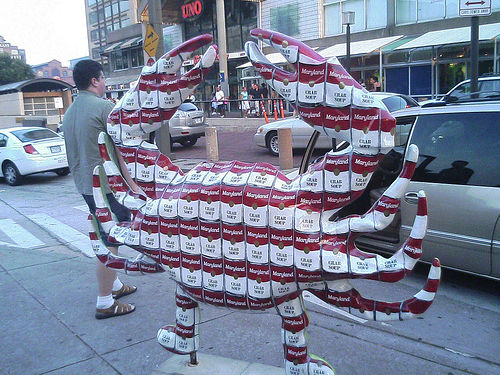A new car company is coming to Japan, but Japanese consumers are already quite familiar with their products. After years of speculation, Toyota is finally bringing their Lexus brand of luxury automobiles to the domestic market, opening a nationwide network of dealerships here in an attempt at stealing some of the thunder from BMW and Mercedes-Benz. The funny thing is, the cars sold under the Lexus moniker have always been available in Japan, with names like Windom (ES330, advertised on television with the slogan “Are you Windom?”), Soarer (SC430, “Soarer for mind cruising”) and Harrier (RX300, “Stylish, but formal”). A lot of people are wondering if Toyota can build a successful brand identity for Lexus here, when the newly introduced vehicles will mainly be spruced up versions of already available cars, but with fatter price tags. Unlike in much of the world, where the name Toyota originally meant small, fuel efficient cars, Japanese have never had a problem buying a large range of vehicles under the name Toyota.
We never think about idioms in our own language, but to non-native speakers such as the Japanese, learning the meanings of phrases like to leave no stone unturned or to stick your neck out for someone is a challenge. There are idioms in Japanese, too, including many that make use of parts of the body in different ways. The phrase koshi ga hikui (lit. “one’s lower back is low, near to the ground”) means a person who is very humble and always apologizing (a good thing in the context of Japan), but shiri ga aoi (“one’s rear end is blue”) means they’re too young or lack experience, since babies born in Asia have a blue spot on their rear ends until the age of two or so. If someone can’t keep a secret, they are kuchi ga karui (“their mouth is too light”), but if they are kuchi ga umai (“their mouth is skilled”) then they’re good at making jokes or getting others to agree with them. The eyes in Japanese are called me (pronounced “meh”), and some idioms that make use of eyes include me ga takai (lit. “your eyes are high”), meaning someone who can recognize quality when they see it, and me ga ten ni natta (“my eyes became little black dots”), meaning, I was so surprised, my face looked like a character out of a manga.
J-List carries dozens of English-translated dating-sim games from Japan, which let you interact with pretty girls and try to win their hearts. Now for fans of yaoi, we’ve got a great announcement: the first two English-translated “BL” games, which let fans of yaoi in on the fun, too. There are two titles we’re posting for preorder now, the first being Enzai – Falsely Accused, a story of betrayal set in Napoleonic Europe in which you play the part of Guys, a youth sent to prison for a crime he didn’t commit. Next is Perfect Obedience – Zettai Fukuju Meirei, a game combining a complex game system and cool-looking military uniforms (can’t go wrong, there).
For all fans of the wacky OH! Mikey, the popular Japanese drama about an American family living in Japan that uses mannequins as actors, we’ve got a treat: OH! Mikey Hard Core, a brand new DVD that’s loaded with great stories, and features both subtitles on the Japanese episodes and some English-dubbed episodes, too! It’s the best Mikey ever! (region 2)
















